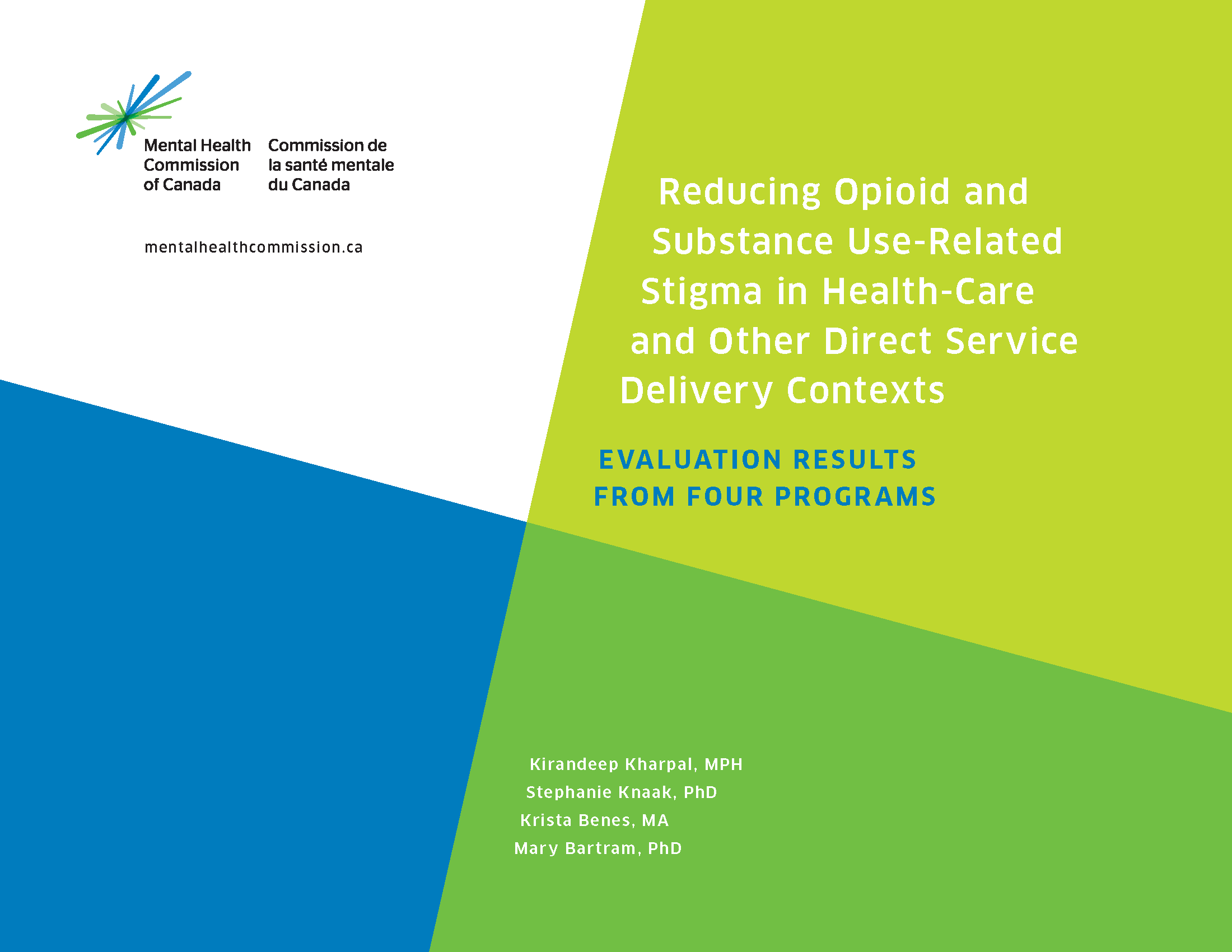If you are in distress, you can call or text 988 at any time. If it is an emergency, call 9-1-1 or go to your local emergency department.
- Public Resources, Reports
Implementing Recovery-Oriented Practice: Real-World Examples in Canada
Case studies of real-world programs and initiatives that have implemented recovery-oriented practice from service user and service provider perspectives. Despite the importance of knowledge transfer in promoting the experiential knowledge of people with lived or living experience of a mental health problem, that alone is not enough to change stigmatizing attitudes regarding mental health. According to the World Health Organization, one person in four will experience a mental health problem in their lifetime, and nearly two-thirds of these individuals will not seek help for fear of prejudice. In fact, some report that they suffer more from stigmatization than from the condition itself.
- Public Resources, Reports
Implementing Recovery-Oriented Practice: Real-World Examples in Canada
Implementing Recovery-Oriented Practice: Real-World Examples in Canada
- Stigma
Case studies of real-world programs and initiatives that have implemented recovery-oriented practice from service user and service provider perspectives. Despite the importance of knowledge transfer in promoting the experiential knowledge of people with lived or living experience of a mental health problem, that alone is not enough to change stigmatizing attitudes regarding mental health. According to the World Health Organization, one person in four will experience a mental health problem in their lifetime, and nearly two-thirds of these individuals will not seek help for fear of prejudice. In fact, some report that they suffer more from stigmatization than from the condition itself.
SHARE THIS PAGE
RELATED

Review our Assessment Framework for Mental Health Apps — a national framework containing key standards for safe, quality, and effective mental health apps in Canada.

To help expand the use of e-mental health services, we developed four online learning modules based on our Toolkit for E-Mental Health Implementation, in collaboration with the Centre for Addiction and Mental Health (CAMH).

Stepped Care 2.0© (SC2.0) is a transformative model for organizing and delivering evidence-informed mental health and substance use services.

